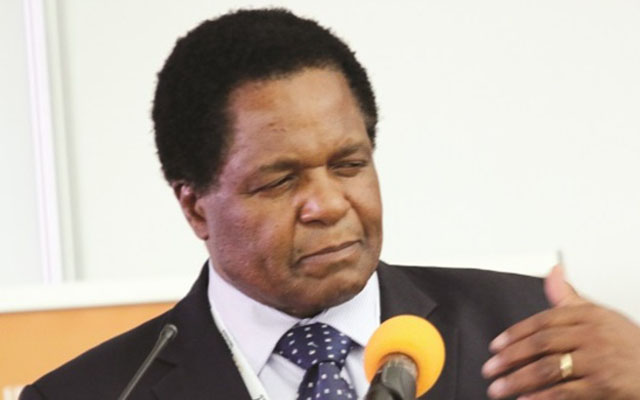Medical fraternity mourns Stamps

Fortunate Gora
THE medical fraternity in Mashonaland West Province has described the late national hero Dr Timothy Stamps as a fair and democratic leader who shunned racial discrimination in the provision of health services to the nation.
Dr Stamps, the former Minister of Health and Child Care, died last week at Borrowdale Trauma Centre after a lung infection. He was 81. In an interview last week, Chinhoyi Provincial Hospital board chairperson Mrs Matilda Jairosi said Dr Stamps was a fair leader who respected human rights regardless of skin colour, ethnic and religious background.
She described Dr Stamps as a father who was humble and would mingle with everyone in the ministry regardless of his ministerial post unlike other ministers who are not easily accessible.
“Dr Stamps was more of a father who was white, but more like an African,” she said. “When he was a Minister of Health and Child Care he would mingle with us, unlike other ministers.”
Mrs Jairosi said during his tenure, Dr Stamps worked hard in improving the health sector.
“During his term he championed the fight against HIV/AIDS,” she said. “In 1999 he worked very hard to contain the mother to child transmission of HIV. I remember that in 2004 Dr Stamps founded the Doctor Timothy Stamps trust for people living with chronic conditions.”
Member of Parliament for Chinhoyi (MDC-T), who is also a medical practitioner, Dr Peter Mataruse, described the death of Dr Stamps as a great loss, not only to the medical fraternity, but the nation at large. He said Dr Stamps was an educated and learned leader who was able to separate his work and his political life.
“The death of Dr Stamps is a great loss to everyone, we lost an educated and learned political leader who was neutral when it comes to his work,” said Dr Mataruse.
“Everyone would benefit from his services regardless of political affiliation, I considered him a very fair leader.”
Dr Stamps became the Minister of Health and Child Welfare from 1990 to 2002. During his time, he also advocated for development of a policy that rehabilitated and treated drug addicts, instead of incarcerating them.











Comments